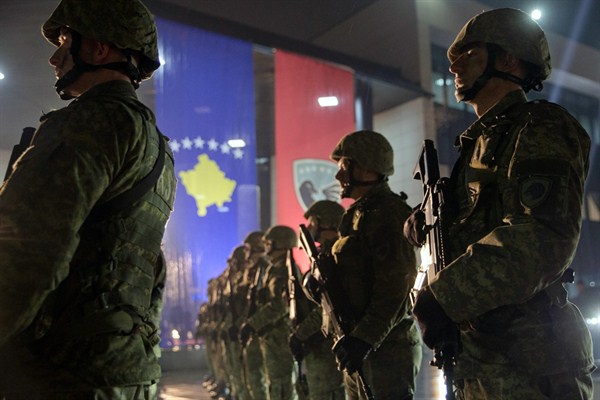On Dec. 14, Kosovo’s parliament took a step that the Serbian government had warned could lead to military intervention: It voted to form an army. Months after Serbian President Aleksandar Vucic and his counterpart in Kosovo, Hashim Thaci, shared a stage and discussed ongoing negotiations to bring lasting peace to the Balkans, the region seems to be tipping back to the bad old days.
An outbreak of war is very unlikely in the near future, but it is increasingly apparent that Western policy toward the region is losing traction, compounding past missteps and leading to the weakening of the Euro-Atlantic project in a swath of Europe.
The Kosovo parliament’s vote would change a lightly armed, 4,000-strong “security force” into a professional army. The move has divided Kosovo’s Western supporters. The United States has backed it as “Kosovo’s sovereign right,” while NATO Secretary-General Jens Stoltenberg warned of “serious repercussions for Kosovo’s future Euro-Atlantic integration.”

